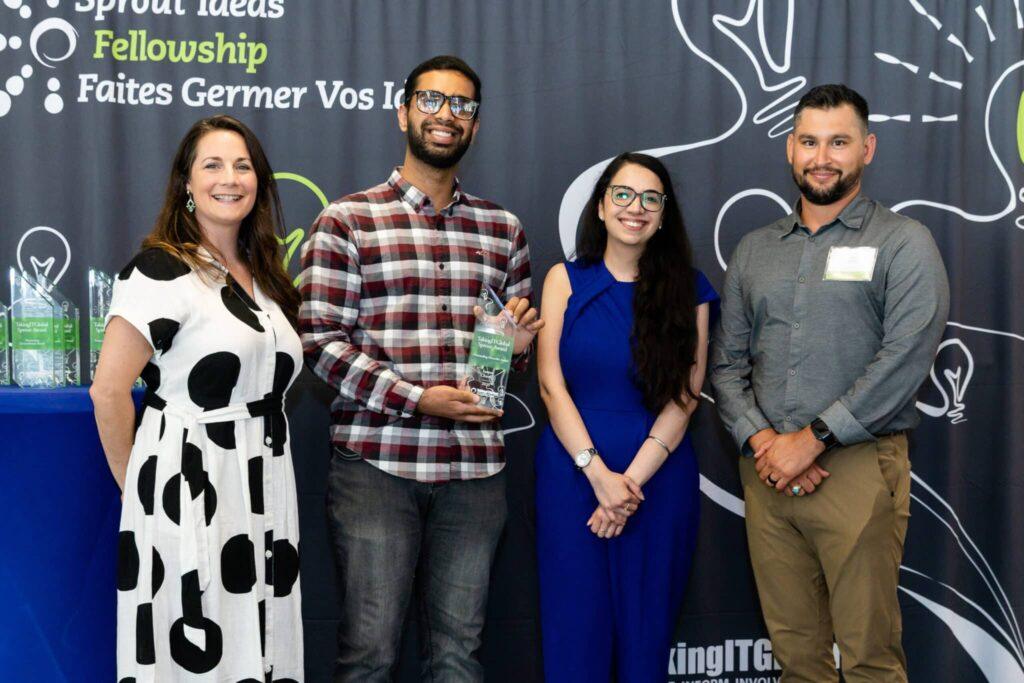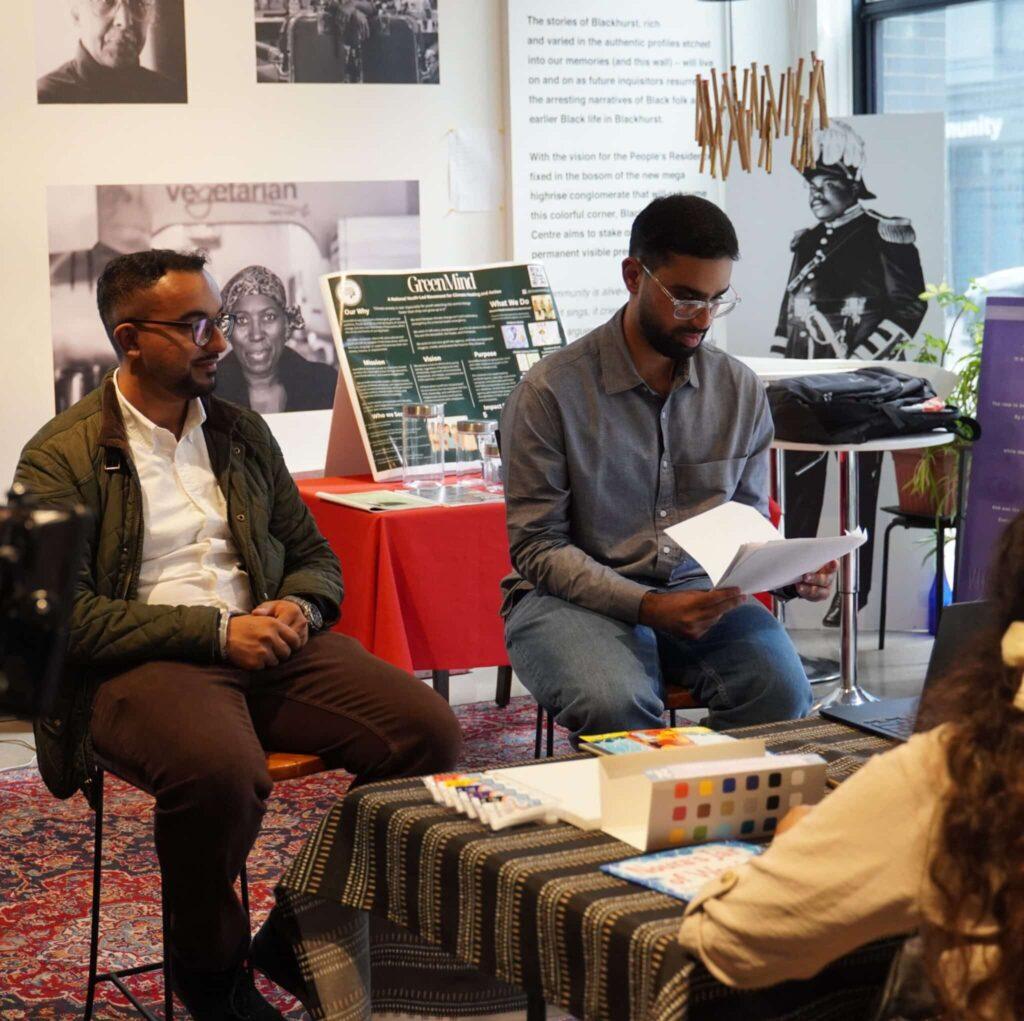What We Do
At Green Mind, we believe that caring for the earth also means caring for the emotional, mental, cultural, and social wellbeing of the people who live on it. Our work focuses on young people, particularly those from communities that are often excluded from climate conversations, underrepresented in policy decisions, and underserved by existing mental health systems.
We develop and deliver programs, resources, and tools that respond to a growing emotional reality: climate change is impacting not only ecosystems, but also hearts, minds, and communities. Through youth-led programming, community partnerships, and digital innovation, we support youth in making sense of their feelings, reconnecting with cultural and land-based knowledge, and building emotional strength through action, creativity, and collective care.
Our work is grounded in three interconnected pillars: emotional awareness and support, culturally responsive education, and action-based empowerment.
1. Emotional Awareness and Support
Our first priority is to help young people recognize and understand the wide range of emotions they may experience in response to the climate crisis. Many youth feel overwhelmed, frightened, or angry when they hear about environmental disasters, the loss of biodiversity, or the uncertain future of their communities. Others may feel numb, confused, guilty, or hopeless, unsure how to respond to something so large and out of their control. These emotional responses are valid. They are not signs of individual failure. They are deeply human reactions to a world in distress.
At Green Mind, we create programming that invites young people to:
● Explore what they are feeling in response to climate change, including emotions such as grief, anxiety, anger, fear, powerlessness, and confusion
● Understand that these feelings are not only common but are also signs of deep care and connection to the world
● Learn grounding techniques and emotional regulation strategies that are appropriate for different ages and cultural backgrounds
● Build emotional literacy by learning how to name, express, and reflect on what they are feeling in a supportive and non-judgmental environment

We use storytelling, breathwork, creative expression, land-based activities, and group reflection to help youth feel safe, supported, and emotionally seen. Our programs are trauma-informed, meaning they are intentionally designed to prioritize emotional safety, consent, and care. We also ensure that our facilitators are trained to respond sensitively to participants who may be carrying additional forms of stress or trauma related to displacement, loss, or systemic marginalization.
Our mental health programming is not clinical. It is relational. It is built on trust, compassion, and the belief that young people can heal and grow when they feel connected to others and to themselves.
2. Culturally Responsive and Place-Based Education
We recognize that no single approach to wellness can serve all communities. Emotional support must be grounded in local realities, cultural values, and traditional forms of knowledge. For this reason, Green Mind develops all of our materials and programs in partnership with youth, community members, educators, Elders, knowledge holders, artists, and caregivers from the communities we serve.
We intentionally prioritize rural and Indigenous communities because these regions often experience multiple layers of exclusion in both climate and health-related services. Youth in these areas may face barriers such as language inaccessibility, lack of nearby mental health professionals, historical trauma, racism, or a lack of culturally affirming programming in schools.
To address these realities, we co-create and offer:
● Workshops that integrate Indigenous teachings, land-based learning, storytelling circles, and intergenerational knowledge exchange
● Programming that honors diverse cultural and spiritual understandings of health, emotion, land, and responsibility
● Resources that are bilingual (available in both English and French), plainspoken, and accessible to youth of different literacy levels and learning styles
● Content that is adaptable to the specific needs of schools, camps, wellness days, and community organizations across different regions of Canada

We always begin by asking, “Who is in the room, and what do they need in order to feel emotionally safe, culturally seen, and meaningfully included?” Our programming is flexible and iterative. We revise our materials continuously in response to community feedback, emerging needs, and the lived experiences of the youth we work with.
We are committed to cultural humility, which means that we recognize the limits of our own knowledge, and we listen first. We believe in working alongside communities rather than imposing outside solutions.
3. Action-Based Empowerment and Youth Leadership
Emotional awareness is essential, but it is not enough on its own. Young people also need to feel that they have the power to shape their future and that their efforts, voices, and care can lead to meaningful change. At Green Mind, we believe that purposeful action can be a powerful tool for healing, confidence-building, and emotional regulation.
We support youth in identifying what matters to them and in taking small but significant steps to make a difference within their communities. These steps do not need to be grand or perfect. They simply need to be intentional and rooted in care.
Through our action-based programs, we support youth in:
● Organizing community tree planting events, clean-up days, or mural projects
● Leading school-based mental health campaigns that create safe spaces for emotional sharing
● Creating zines, short films, poetry collections, or music that explore eco-emotions and resilience
● Facilitating peer conversations and group support sessions where young people can process their feelings together
● Launching workshops or events that blend climate education with emotional healing

We provide step-by-step toolkits that include reflection questions, creative prompts, checklists, and planning templates. These toolkits are designed to be accessible, youth-friendly, and adaptable for different group sizes, ages, and community settings.
In addition, we are preparing to launch a national youth facilitator training program that will equip young leaders with the skills to deliver our workshops, co-develop new curriculum, and become trusted wellness leaders within their schools and regions. This program will include mentorship, trauma-informed training, and opportunities to build lasting peer networks of support.
Our approach to empowerment is not rooted in pressure or perfectionism. We never ask youth to fix the climate crisis. Instead, we invite them to care for themselves, to care for each other, and to take meaningful actions that reflect their values, creativity, and love for the world.
